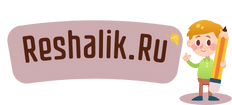Sure, here are the paraphrased questions: 1. I’m from France. a) is b) are c) am d) be 2. This is my friend. His name is
1. I’m from France. a) is b) are c) am d) be
2. This is my friend. His name is Peter. a) her b) our c) yours d) his
3. Mike is a) my sister’s friend b) friend of my sister c) friend from my sister d) my sister’s friend
4. My brother is an artist. a) the b) an c) a d)
5. There are 20 desks in the classroom. a) this is b) there is c) they are d) there are
6. Paul doesn’t like romantic films. a) likes not b) don’t like c) doesn’t like d) isn’t likes
7. Sorry, I can’t talk. I’m driving right now. a) driving b) ‘m driving c) drives d) drive
8. She wasn’t at school last week. a) didn’t be b) weren’t c) wasn’t d) isn’t
9. I liked the film last night. a) like b) likes c) liking d) liked
10. A piece of cake? No, thank you. a) do you like b) would you like c) want you d) are you like
11. The living room is bigger than the bedroom. a) more big b) more bigger c) biggest d) bigger
12. The car is very old. We’re going to buy a new car soon. a) to buy b) buying c) to will buy d) buy
13. Jane is a vegetarian. She never eats meat. a) sometimes eats b) never eats c) often eats d) usually eats
14. There aren’t any buses late in the evening. a) some b) any c) no d) a
15. The car park is in front of the restaurant. a) next b) opposite c) behind d) in front
16. Sue goes shopping every day. a) is going b) go c) going d) goes
17. They were walking in the park when it started to rain heavily. a) walked b) were walking c) were walk d) are walking
18. Have you ever seen fireworks before? a) did you ever b) are you ever c) have you ever d) do you ever
19. We’ve been friends for many years. a) since b) from c) during d) for
20. You don’t have to pay for the tickets. They’re free. a) have to b) don’t have c) don’t need to d) doesn’t have to
21. Jeff was ill last week and he couldn’t go out. a) needn’t b) can’t c) mustn’t d) couldn’t
22. These are the photos that I took on holiday. a) which b) who c) what d) where
23. We’ll stay at home if it rains this afternoon. a) raining b) rains c) will rain d) rain
24. He doesn’t smoke now, but he used to smoke a lot when he was young. a) has smoked b) smokes c) used to smoke d) was smoked
25. Mark plays football better than anyone else I know. a) more good than b) as better as c) best than d) better than
26. I promise I will help you as soon as I’ve finished cleaning. a) will help b) am helping c) going to help d) have helped
Объяснение:
1. Глагол «to be» в английском языке имеет следующие формы: am, is, are. Он используется для обозначения существования, состояния, принадлежности и идентификации.
2. Личные местоимения (subject pronouns) в английском языке: I, you, he, she, it, we, they. Они используются для замещения существительных, чтобы не повторять их.
Пример использования:
1. я из Франции. a) является b c) существует с) являюсь d) быть
2. это мой друг. его зовут Петер. a) ее b) наш c) ваш d) его
3. Майк — друг моей сестры. a) друг моей сестры b) друг моей сестры c) друг от моей сестры d) друг моей сестры
4. мой брат — художник. a) в b) а c) один d)
5. в классе 20 парт. a) это b) есть c) они d) там есть
6. Полу не нравятся романтические фильмы. a) не нравится b) не любят c) не любит d) не нравится
7. Извините, я не могу разговаривать. я веду машину прямо сейчас. a) я веду b) я веду c) он ведет d) ведет
8. она
